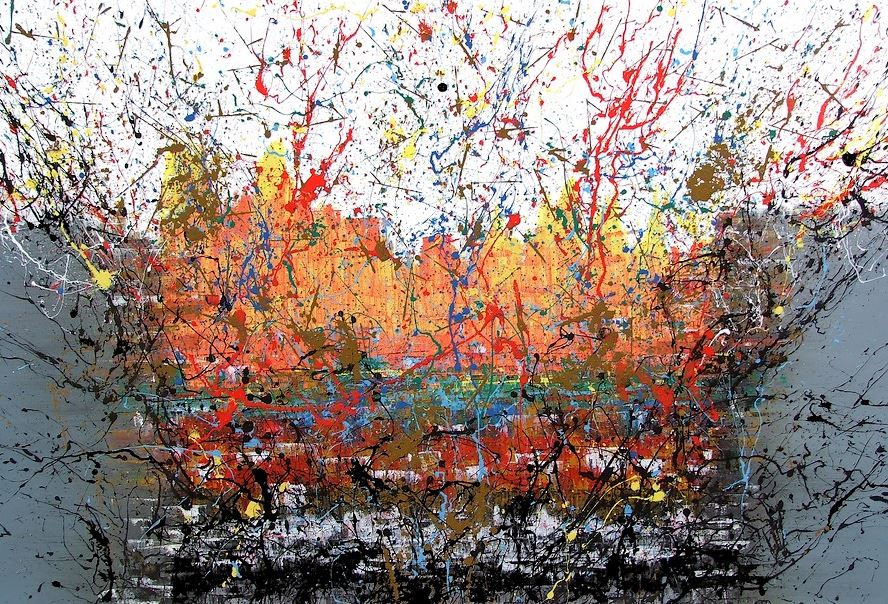
We take a stand for resilience as a widespread capacity to life
By Fiorella Capasso,Fiodanice-Cultures en dialogue
April 2020
Never as in these stormy days—which we will remember as those of the Coronavirus—have we felt the need to refine our human, spiritual, professional and organizational skills through which we typically accompany the paths of resilience[1] of the many vulnerable people welcomed into our Apostolic Services, who were exposed to uprooting, direct and/or witnessed violence, sexual and/or labour exploitation, marginalization and discrimination.
Never as in these stormy days have we seen the women, girls, boys, children, Italians and foreigner people hosted in our residential facilities tremble in front of this first mysterious globalized adversity. What impact will it have on my journey, which is already so difficult? Will I be able to draw enough positive strength from this further negative and stressful event that involves everyone today? Those who are helping me to benefit from my painful personal events, that at the beginning seemed to me nothing but destructive, will today be able to welcome and transform into a resource the pain that is becoming more and more acute and widespread?
![]() For their part, the teams engaged in the mission as mentors for resilience—as a way to acknowledge a person as a whole, strengthen their resources and skills and try to reduce their vulnerability—are now focused on adapting “Coronavirus crisis management” tools and skills to their daily services. Every day, it is essential to guarantee, in this extraordinary situation of emergency, high quality helping relationships, capable of interweaving safety and care for people and their life plans once again at risk. Every day, it is essential to maintain the quality of the helping relationship, made up of discreet and integrated, delicate supports, capable of listening, knowing, constantly recreating a relationship, a relationship of trust, starting from the point where the other is, with their specific strengths and weaknesses, in order to accompany them to exercise, more and more autonomously, the ability to reconnect the threads of their history between past, present and future.
For their part, the teams engaged in the mission as mentors for resilience—as a way to acknowledge a person as a whole, strengthen their resources and skills and try to reduce their vulnerability—are now focused on adapting “Coronavirus crisis management” tools and skills to their daily services. Every day, it is essential to guarantee, in this extraordinary situation of emergency, high quality helping relationships, capable of interweaving safety and care for people and their life plans once again at risk. Every day, it is essential to maintain the quality of the helping relationship, made up of discreet and integrated, delicate supports, capable of listening, knowing, constantly recreating a relationship, a relationship of trust, starting from the point where the other is, with their specific strengths and weaknesses, in order to accompany them to exercise, more and more autonomously, the ability to reconnect the threads of their history between past, present and future.
These are the bewilderments, questions and feelings that exist in our realities in these stormy days of collective trauma. In fact, no one was ready for an emergency such as the one we are experiencing, which powerfully introduces the distressing dimension of the unexpected, the unpredictable, the ungovernable not only in the lives of individuals, but also in those of institutions and systems on a global scale. Did we, too, think that “we would stay healthy in a world that was sick”[2]?
For the people we host, way before the Coronavirus, the time came “to choose what matters and what passes away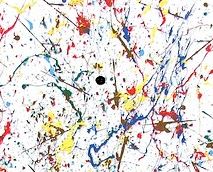 , a time to separate what is necessary from what is not…a time to get our lives back on track”[3]. Of course, all of us, to different extents, have now had the chance to understand that “getting life back on track” implies much more than just the ability to survive. Because resilience is the ability to understand and bravely cope with traumatic events, to reorganize one’s life positively in the face of difficulties. It is trying to rebuild oneself by staying sensitive to the opportunities that life itself offers, by strengthening self-esteem, without alienating one’s identity and without losing humanity. It is enduring the uncertainties of our journey. Resilience “needs to be lived, understood, smelled, tasted, spat on, denied, listened to and finally integrated, just like the flow of life”[4]. Even the worst and most stressful situation brings with it an important opportunity for development for us to be able or willing to catch…an opportunity for struggle, courage and resistance so as not to give in to inevitable moments of resignation, vindication and/or exaltation.
, a time to separate what is necessary from what is not…a time to get our lives back on track”[3]. Of course, all of us, to different extents, have now had the chance to understand that “getting life back on track” implies much more than just the ability to survive. Because resilience is the ability to understand and bravely cope with traumatic events, to reorganize one’s life positively in the face of difficulties. It is trying to rebuild oneself by staying sensitive to the opportunities that life itself offers, by strengthening self-esteem, without alienating one’s identity and without losing humanity. It is enduring the uncertainties of our journey. Resilience “needs to be lived, understood, smelled, tasted, spat on, denied, listened to and finally integrated, just like the flow of life”[4]. Even the worst and most stressful situation brings with it an important opportunity for development for us to be able or willing to catch…an opportunity for struggle, courage and resistance so as not to give in to inevitable moments of resignation, vindication and/or exaltation.
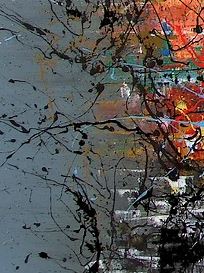 Boris Cyrulnik, the French neuropsychiatrist who has spread a concept of resilience full of meaning across Europe, knows something about it. By re-elaborating those extreme adversities—experienced in childhood—that endangered his own life, he has managed to give greater emphasis to the life-transforming character of resilience than to its original character of resistance to the shocks of life which is typical of American culture. This, in turn, restores the Latin etymological root “resalio”, from the verb “salio”, that according to one of its original meanings indicated the action of getting back on the boat capsized by the waves of the stormy sea.
Boris Cyrulnik, the French neuropsychiatrist who has spread a concept of resilience full of meaning across Europe, knows something about it. By re-elaborating those extreme adversities—experienced in childhood—that endangered his own life, he has managed to give greater emphasis to the life-transforming character of resilience than to its original character of resistance to the shocks of life which is typical of American culture. This, in turn, restores the Latin etymological root “resalio”, from the verb “salio”, that according to one of its original meanings indicated the action of getting back on the boat capsized by the waves of the stormy sea.
According to Boris Cyrulnk, the answer to the catastrophe does not consist in re-establishing, by reinforcing it, the previous order, but in creating one that was not there before, trying to recover all the value of one’s own history. The trauma is repairable, but not reversible: the rupture is a fluctuation, it forces systems to be creative. From disorder to fertility: chaos continually opens the way to incredible lives.
It is no coincidence that in these stormy days Cyrulnik, like a proper “wounded healer”[5], expressed himself 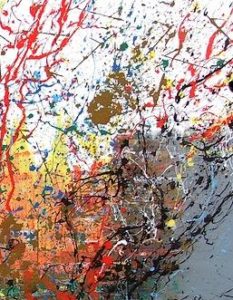 follows[6]: “After the Coronavirus there will be deep changes. This is how it works. Crises are frequent in the human condition. We have already experienced many epidemics that have forced cultural revolutions.” We can believe it. He really knows something about deep changes as he has personally experienced them. Already as a child he was forced to reinvent his life, while his parents were dying in concentration camps. He saved himself from a slaughter in the synagogue by hiding in the bathroom and was raised by a merciful woman under a false name. “Right now—continues Cyrulnik in the interview—while in lockdown at home, we must aim for an inner quest.” As if to say that this collective trauma forces us to invent new rules and ways of living together, on all levels: “We will adapt by returning to ourselves, we will rediscover the values of our grandparents.”
follows[6]: “After the Coronavirus there will be deep changes. This is how it works. Crises are frequent in the human condition. We have already experienced many epidemics that have forced cultural revolutions.” We can believe it. He really knows something about deep changes as he has personally experienced them. Already as a child he was forced to reinvent his life, while his parents were dying in concentration camps. He saved himself from a slaughter in the synagogue by hiding in the bathroom and was raised by a merciful woman under a false name. “Right now—continues Cyrulnik in the interview—while in lockdown at home, we must aim for an inner quest.” As if to say that this collective trauma forces us to invent new rules and ways of living together, on all levels: “We will adapt by returning to ourselves, we will rediscover the values of our grandparents.”
In spiritual terms, these stormy days offer us the possibility of recovering our memory and covenant ability[7]… “everything will be all right” or, rather, everything could be better, provided that we do not only rely on individual enthusiasm and willingness. Above all, there is an urgent need for greater understanding and collective responsibility concerning the reality that the Coronavirus presents to us: “Today we’re wearing a mask because until yesterday we were wearing blinders”[8].
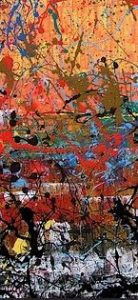 Is this the meaning of what the ancients have handed down to us: “All great things stand in the storm”[9]? Perhaps the great message of these stormy days is that, although we have found ourselves more fragile and vulnerable than we thought, together we can attempt resilience and regenerate life. This recalls a lot Paul’s message: “When I am weak, then I am strong” (2 Corinthians 12:10).
Is this the meaning of what the ancients have handed down to us: “All great things stand in the storm”[9]? Perhaps the great message of these stormy days is that, although we have found ourselves more fragile and vulnerable than we thought, together we can attempt resilience and regenerate life. This recalls a lot Paul’s message: “When I am weak, then I am strong” (2 Corinthians 12:10).
What is a good viaticum for personal, professional, organizational, institutional and social resilience paths for 2020 in these stormy days? To prepare ourselves and prepare everyone else to put in circulation and to grow an ecological capacity to contain paradoxes and contradictions, with courage, prudence and audacity, weaving together, in a network, webs of life… because “la vida es muy linda”[10] and the paths of resilience are permeated with complexity, understood both as a problem to be addressed, and as a field of experimentation and innovation… the poet says:
“Who are only undefeated
Because we have gone on trying;
We, content at the last
If our temporal reversion nourish
(Not too far from the yew-tree)
The life of significant soil.”[11]
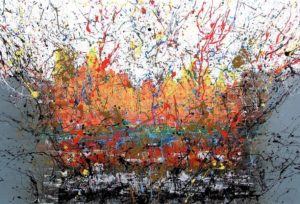
Goa, Rebirth, 2019
[1] Resilience is a term that we find in different fields of application, from engineering to computer science, from psychology to biology. Here we will refer to psychological resilience, that is, man’s ability to withstand the adversities of life.
[2] See Pope Francis, Homily during the extraordinary moment of prayer, on 27 March 2020.
[3] See Pope Francis, ibidem.
[4] See Elena Malagutti, Educarsi alla resilienza, 2005.
[5] See Gustav Jung, recalling the Greek myth of Chiron, considered to be the father of medicine, introduced an idea that revolutionized the “helping relationship” approach: one can contribute to the healing of the other as long as one is aware of one’s wounds.
[6] See interview at the French radio broadcast “Gran bien vous fasse”.
[7] See homily of Pope Francis in Santa Marta on 2 April 2020.
[8] See Flavio Torsi, writer and blogger.
[9] See Plato, Republic, 497, d, e.
[10] See Pope Francis’ video for a loving encouragement to be resilient.
[11] See T.S. Eliot, Four Quartets, 1943.
